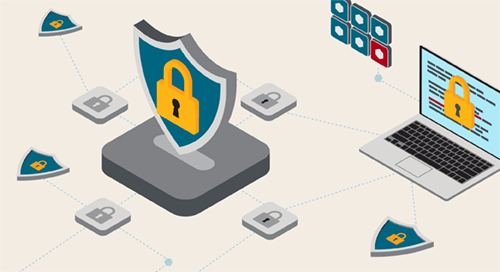Data breaches have damaged companies across industries, leading to stolen and ransomed data, regulatory fines, and other financial losses. Commit to these 6 best practices to stop them before they stop you.
01 Create a culture of MFT security
Creating a culture of security around managed file transfer (MFT) helps integrate security into every part of your organization, reducing vulnerabilities and fostering a proactive approach to safeguarding sensitive data. Make protecting data everyone’s job with executive buy-in, strong security policies, incident monitoring and response plans, and employee training and awareness.
02 Keep software up to date
Staying on top of MFT software updates is essential for safeguarding your sensitive data, ensuring system reliability, and maintaining compliance with security regulations. A regular cadence of patches and updates gives you a first line of defense against known vulnerabilities, malware, ransomware, and emerging threats.
03 Adopt Zero Trust security
Zero Trust security ensures that no single access point is inherently trusted, maximizing the integrity, privacy, and security of your data transfers. To make this happen, you need modern software architecture to support Zero Trust principles and policies, including strong identity and access management (IAM), multi-factor authentication (MFA), role-based access control (RBAC), and encryption of data both in transit and at rest.
04 Integrate with internal and external systems
MFT needs to be an unbreachable fortress, but not an island. Strengthen your security posture by integrating MFT with systems to detect, contain, and repair data breaches, including IT Operations systems, Security Information and Event Management (SIEM) systems, backup, and disaster recovery.
05 Choose an MFT vendor strong on security
Defense against data breaches requires a vendor with solutions designed for security and compliance, robust internal security programs, and adherence to security best practices. Look for a vendor with certified security engineers, user groups for added support, and red and blue teams that test their solutions for security.
06 Consider delegating security to a managed service provider
The right managed service provider can help you make up for a shortfall in MFT and security expertise. By taking the managed service route, you can gain access to expert talent, free your IT team to focus on more strategic projects, and benefit from the cost savings and scalability of a cloud-based solution.
Need to make your MFT an unbreachable fortress?














